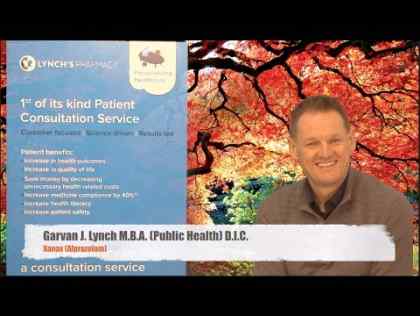Symptoms
Social anxiety disorder is a chronic mental health condition that causes an irrational anxiety or fear of activities or situations in which you believe that others are watching you or judging you. You also fear that you'll embarrass or humiliate yourself.
Social anxiety disorder can have emotional, behavioral and physical signs and symptoms.
Emotional and behavioral signs and symptoms of social anxiety disorder include:
-
Intense fear of being in situations in which you don't know people
-
Fear of situations in which you may be judged
-
Worrying about embarrassing or humiliating yourself
-
Fear that others will notice that you look anxious
-
Anxiety that disrupts your daily routine, work, school or other activities
-
Avoiding doing things or speaking to people out of fear of embarrassment
-
Avoiding situations where you might be the center of attention
Physical signs and symptoms of social anxiety disorder include:
-
Blushing
-
Profuse sweating
-
Trembling or shaking
-
Nausea
-
Stomach upset
-
Difficulty talking
-
Shaky voice
-
Muscle tension
-
Confusion
-
Palpitations
-
Diarrhoea
-
Cold, clammy hands
-
Difficulty making eye contact
You may also be affected by:
-
Low self-esteem
-
Trouble being assertive
-
Negative self-talk
-
Hypersensitivity to criticism
-
Poor social skills
Worrying about having symptoms
When you have social anxiety disorder, you realise that your anxiety or fear is out of proportion to the situation. Yet you're so worried about developing social anxiety disorder symptoms that you avoid situations that may trigger them. And indeed, just worrying about having any symptoms can cause them or make them worse.
Causes
Like many other mental health conditions, social anxiety disorder likely arises from a complex interaction of environment and genes. Researchers continue to study possible causes, including:
-
Genes. Researchers are seeking specific genes that play a role in anxiety and fear. Social anxiety disorder seems to run in families. But evidence suggests that the hereditary component of this condition is due at least in part to anxious behavior learned from other family members.
-
Biochemistry. Researchers are exploring the idea that natural chemicals in your body may play a role in social anxiety disorder. For instance, an imbalance in the brain chemical serotonin could be a factor. Serotonin, a neurotransmitter, helps regulate mood and emotions, among other things. People with social anxiety disorder may be extra-sensitive to the effects of serotonin.
-
Fear responses. Some research suggests that a structure in the brain called the amygdala may play a role in controlling the fear response. People who have an overactive amygdala may have a heightened fear response, causing increased anxiety in social situations.
Risk factors
Social anxiety disorder is one of the most common of all mental disorders. Between 3 and 13 percent of people in Western countries experience social anxiety disorder at some point in their lives. Social anxiety disorder usually begins in the early to midteens, although it can sometimes begin earlier in childhood or in adulthood.
A number of factors can increase the risk of developing social anxiety disorder, including:
-
Your sex. Women are more likely to have social anxiety disorder.
-
Family history. Some research indicates that you're more likely to develop social anxiety disorder if your biological parents or siblings have the condition.
-
Environment. Some experts theorise that social anxiety disorder is a learned behavior. That is, you may develop the condition after witnessing the anxious behavior of others. In addition, there may be an association between social anxiety disorder and parents who are more controlling or protective of their children.
-
Negative experiences. Children who experience teasing, bullying, rejection, ridicule or humiliation may be more prone to social anxiety disorder. In addition, other negative events in life, such as family conflict or sexual abuse, may be associated with social anxiety disorder.
-
Temperament. Children who are shy, timid, withdrawn or restrained when facing new situations or people, may be at greater risk.
-
New social or work demands. Meeting new people, giving a speech in public or making an important work presentation may trigger social anxiety disorder symptoms for the first time. These symptoms usually have their roots in adolescence, however.
Complications
Left untreated, social anxiety disorder can be debilitating. Your anxieties may run your life. They can interfere with work, school, relationships or enjoyment of life. You may be considered an "underachiever," when in reality it's your fears holding you back from excelling. In severe cases, you may drop out of school, quit work or lose friendships.
Social anxiety disorder can also lead to other health problems, such as:
Diagnosis
When you decide to seek treatment for symptoms of possible social anxiety disorder, you may have both a physical and psychological evaluation. The physical exam can determine if there may be any physical causes triggering your symptoms.
There's no laboratory test to diagnose social anxiety disorder, however. Your doctor or mental health provider will ask you to describe your signs and symptoms, how often they occur and in what situations. He or she may review a list of situations to see if they make you anxious or have you fill out psychological questionnaires or self-assessments to help pinpoint a diagnosis.
To be diagnosed with social anxiety disorder, a person must meet criteria spelled out in the Diagnostic and Statistical Manual of Mental Disorders (DSM). This manual is published by the American Psychiatric Association and is used by mental health providers to diagnose mental conditions and by insurance companies to reimburse for treatment.
Criteria for social anxiety disorder to be diagnosed include:
-
A persistent fear of social situations in which you believe you may be scrutinised or act in a way that's embarrassing or humiliating
-
These social situations cause you a great deal of anxiety
-
You recognise that your anxiety level is excessive or out of proportion for the situation
-
You avoid anxiety-producing social situations
-
Your anxiety or distress interferes with your daily living
References
https://www.hse.ie/eng/health/az/A/Anxiety/Treating-anxiety.html
http://www.nhs.uk/conditions/social-anxiety/pages/social-anxiety.aspx
http://www.thelancet.com/journals/lancet/article/PIIS0140-6736(08)60488-2/abstract
http://bestpractice.bmj.com/best-practice/monograph/1120.html












